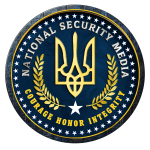UNITED STATES OF AMERICA v. DONALD J. TRUMP,
Defendant. * * * * * * * *
CRIMINAL NO. 23-cr-257 (TSC)
GOVERNMENT’S MOTION FOR IMMUNITY DETERMINATIONS
At trial, as indicated supra pp. 12-14, the Government intends to introduce evidence of private phone calls or in-person meetings (which occasionally included Campaign staff) that the defendant had with Pence in their unofficial capacities, as running mates in the post-election period. These conversations were not described in the original indictment nor analyzed by the Supreme Court in its opinion, nor are they described in the superseding indictment. In these conversations, the defendant and Pence discussed their electoral prospects, election-related litigation, and the possibility of the defendant running again in 2024 if his legal challenges failed.
For example, Pence “tried to encourage” the defendant “as a friend” when news networks projected Biden as the winner of the election; on other occasions, he softly suggested the defendant “recognize [the] process is over” even if he was unwilling to concede, and encouraged the defendant to consider running for election again in 2024. Although the defendant and Pence naturally may have touched upon arguably official responsibilities that were tangential to their election prospects—for instance, whether the federal government should begin its logistical transition to prepare for a different administration—the overall context and content of the conversations demonstrate that they were primarily frank exchanges between two candidates on a shared ticket. The Government does not intend to elicit testimony about any peripheral discussion of arguably official responsibilities.
See Blassingame, 87 F.4th at 17 (“A President acts in a private, unofficial capacity when engaged in re-election campaign activity.”); see also United States v. Helstoski, 442 U.S. 477, 488 n. 7 (1979) (in the Speech or Debate context, when an act contains both protected legislative components and non-protected components, the correct course is to excis[e] references to legislative acts, so that the remainder of the evidence would be admissible).
Together, these discussions show the defendant and Pence considering advice from their shared Campaign advisors, weighing electoral strategies, and grappling with their loss. Both men had something to gain by winning re-election, making more notable the persistence of Pence’s suggestions on how to accept the results of the election without losing face.
Even if the Court determines that these conversations were official, however, the Government can rebut the presumption of immunity because the use of this evidence poses no risk to Executive Branch prerogatives. The content of the conversations at issue—the defendant and Pence’s joint electoral fate and how to accept the election results—has no bearing on any function of the Executive Branch. See Blassingame, 87 F.4th at 4 (“The Office of the Presidency as an institution is agnostic about who will occupy it next.”).
